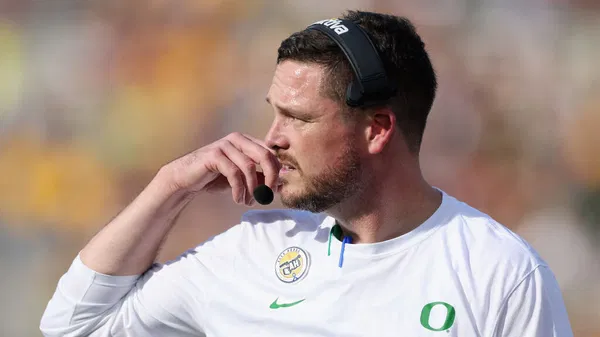
Beneath the glitz and glamour of college football lies a troubling reality: the sport has become closely associated with inequality. With the introduction of Name, Image, and Likeness (NIL) deals and the transfer portal, the disparity among programs has only widened. Players now have almost unrestricted freedom to leave teams, often leaving their former programs struggling to cope. Moreover, elite programs like Oregon can use their extensive NIL resources to lure talent away from smaller schools such as Boise State. These smaller schools invest time and effort in developing players, only for the athletes to thrive at already successful programs. Oregon’s head coach, Dan Lanning, is at the center of such a controversy.
Allegations of Tampering in College Football
Tampering has become a widespread issue in college football, so much so that it’s almost normalized. Even programs guilty of tampering lament its existence but participate to remain competitive. Recent accusations against Dan Lanning and his Oregon program highlight this problem. Dirk Koetter, a former offensive coordinator turned analyst at Boise State, has alleged improper conduct involving the Ducks.
Boise State’s season ended with a loss to Penn State in the Fiesta Bowl. Although the transfer portal officially closed for intakes on December 28, players from teams with games after that date had an additional five days to decide their futures. Koetter claims that Oregon broke the rules during this period. He alleges that immediately after the final whistle of the Fiesta Bowl, one of Boise State’s key defensive starters was contacted by the Ducks with a lucrative offer.
In an interview with KTIK Idaho Sports Talk, Koetter stated, “I know for a fact that just last week—after the Fiesta Bowl—one of the key starters on defense got a call from the Oregon Ducks, offering him $700,000.” While the player remains unnamed, the accusation raises serious concerns. Unfortunately, such appeals are often ignored. The competitive nature of college football pushes programs to exploit loopholes and gain advantages, leaving little room for ethical considerations.
A Common Practice Among Elite Programs
Oregon is not the first program to face tampering accusations. Prominent coaches like Nick Saban and Deion Sanders have also been implicated in similar controversies. Some individuals, such as former Arizona State assistant coach Antonio Pierce, have faced penalties for tampering. However, the practice remains rampant, with enforcement being inconsistent. In response to the accusations against Lanning, an Oregon fan and insider offered an unfiltered perspective on the matter.
On the “Locked on Ducks (Oregon)” YouTube channel, Spencer McLaughlin questioned the definition of tampering, calling it a “blanket catch-all term” used for anything perceived as unethical or rule-breaking. McLaughlin argued that tampering is so widespread that it has become an accepted part of the sport. He noted that Oregon players themselves have likely been tampered with, emphasizing the systemic nature of the issue.
McLaughlin also pointed out how the transfer portal facilitates tampering. He explained that when players enter the portal with a “Do Not Contact” tag, it’s unrealistic to believe they haven’t already communicated with other schools. The reality, he suggested, is that tampering happens long before players officially enter the portal.
A Problem Without a Solution?
Dirk Koetter’s allegations against Dan Lanning are likely true. However, Lanning is far from the only coach to engage in such practices. Until there is consistent and equal punishment for tampering across the board, singling out individuals like Lanning would be unfair. This issue has prompted some coaches to advocate for the introduction of a college football commissioner to address such problems uniformly.
For now, the harsh truth is that top programs will continue to leverage their resources and influence to gain an edge. College football has become a results-driven business where ethics often take a backseat. Without significant legislative changes, the divide between powerhouse programs and smaller schools will only grow.
This ongoing dilemma raises an important question: Are elite programs like Oregon undermining the integrity of college football, or are they simply adapting to the current rules?